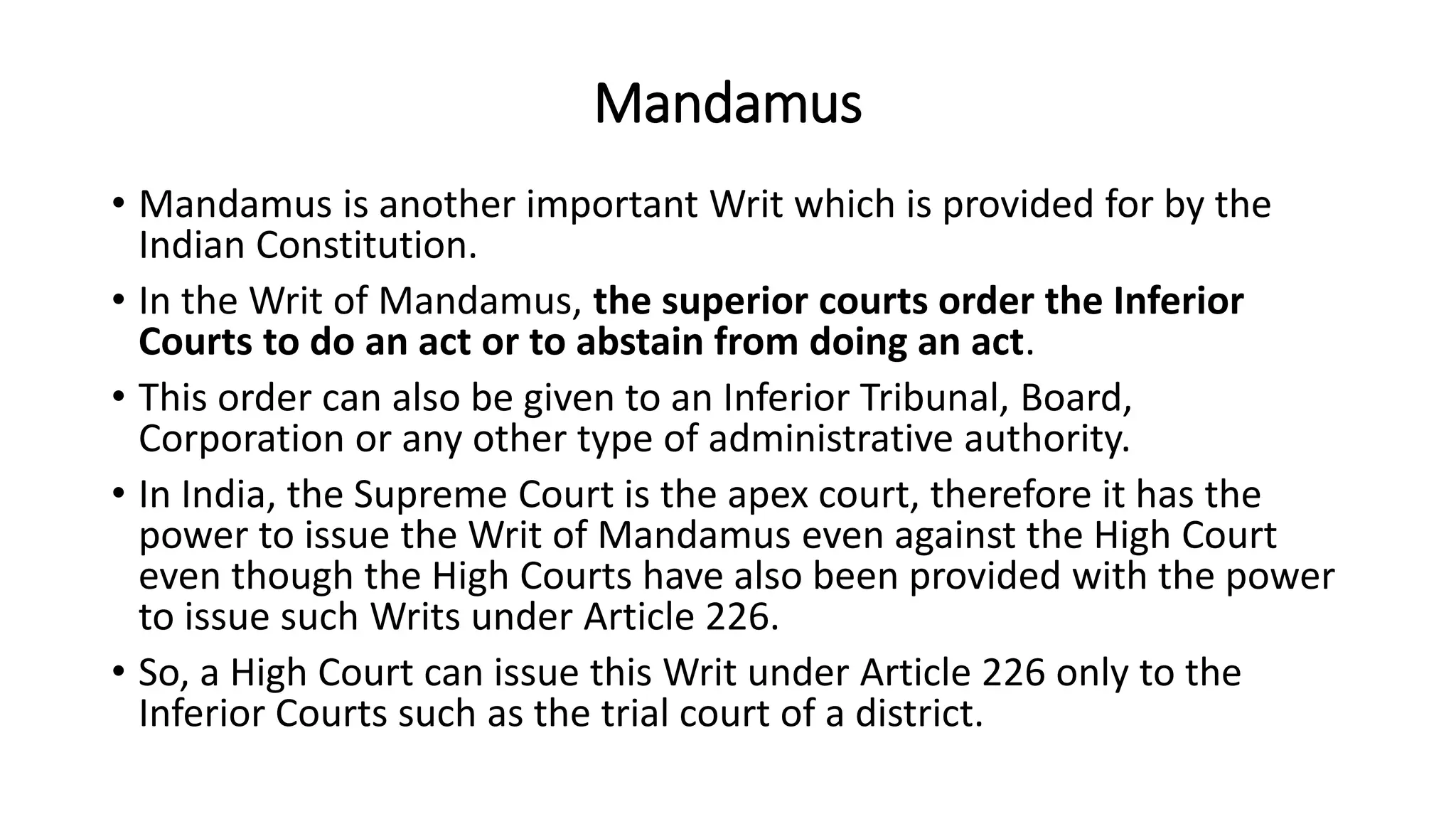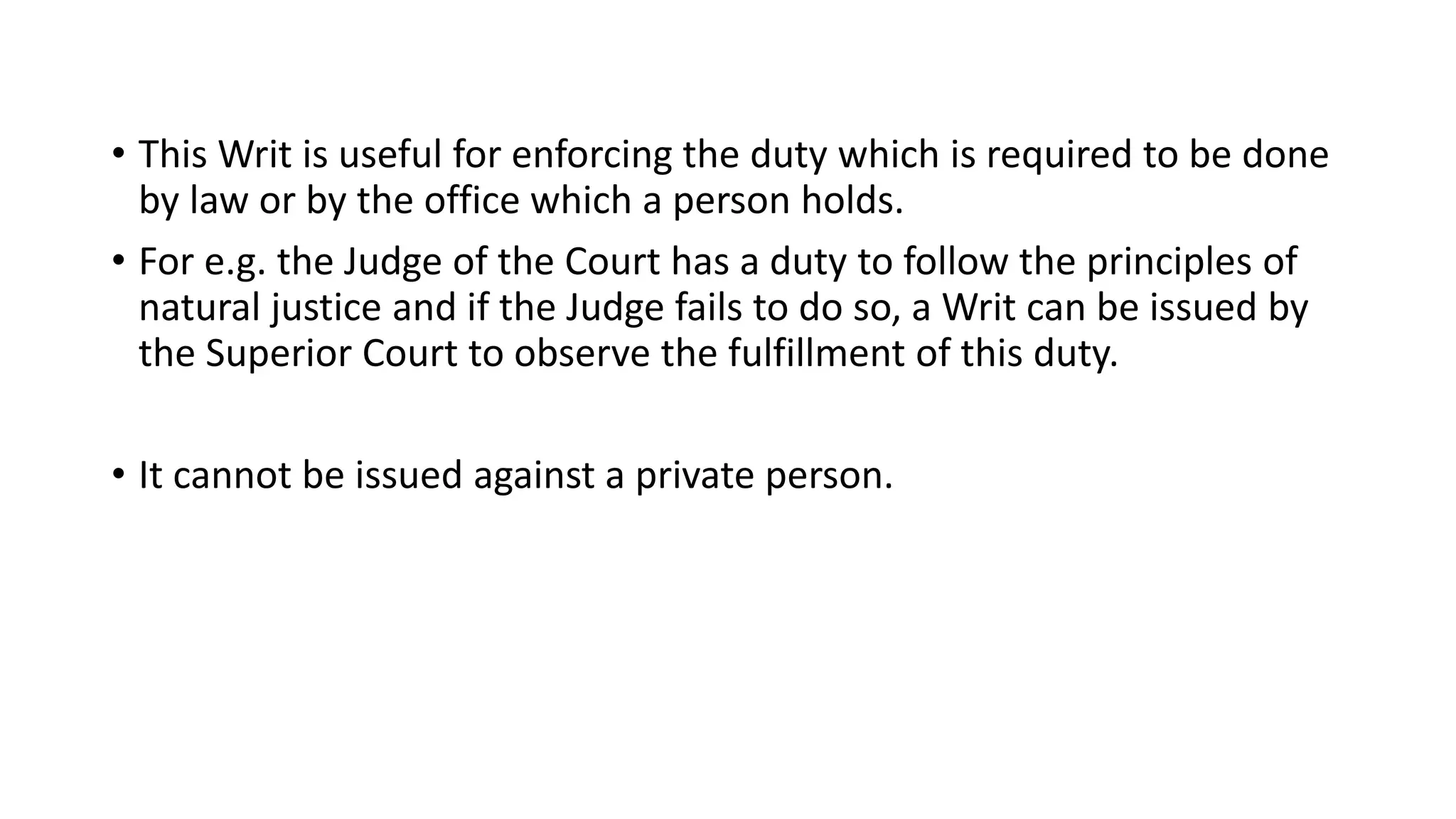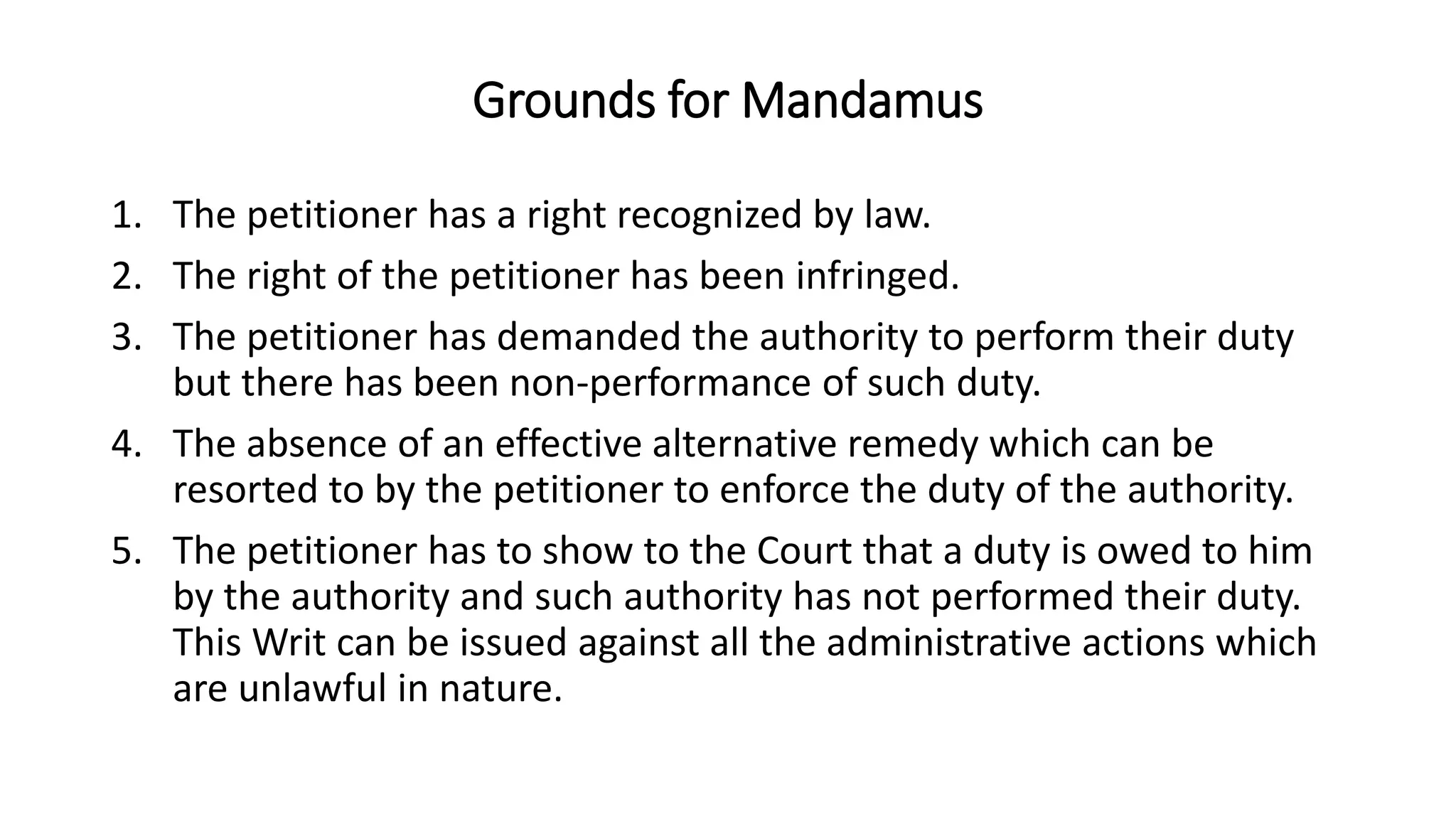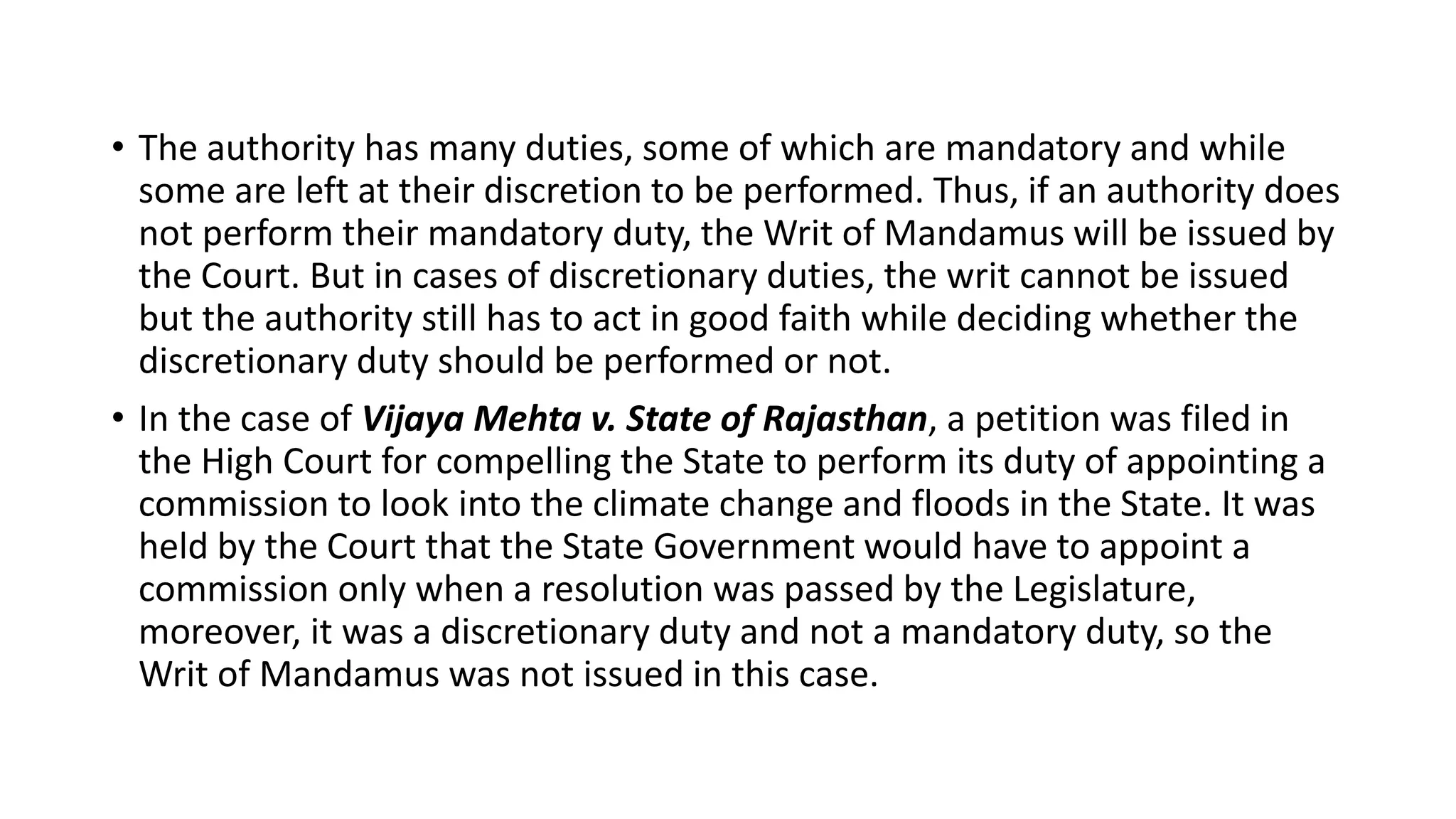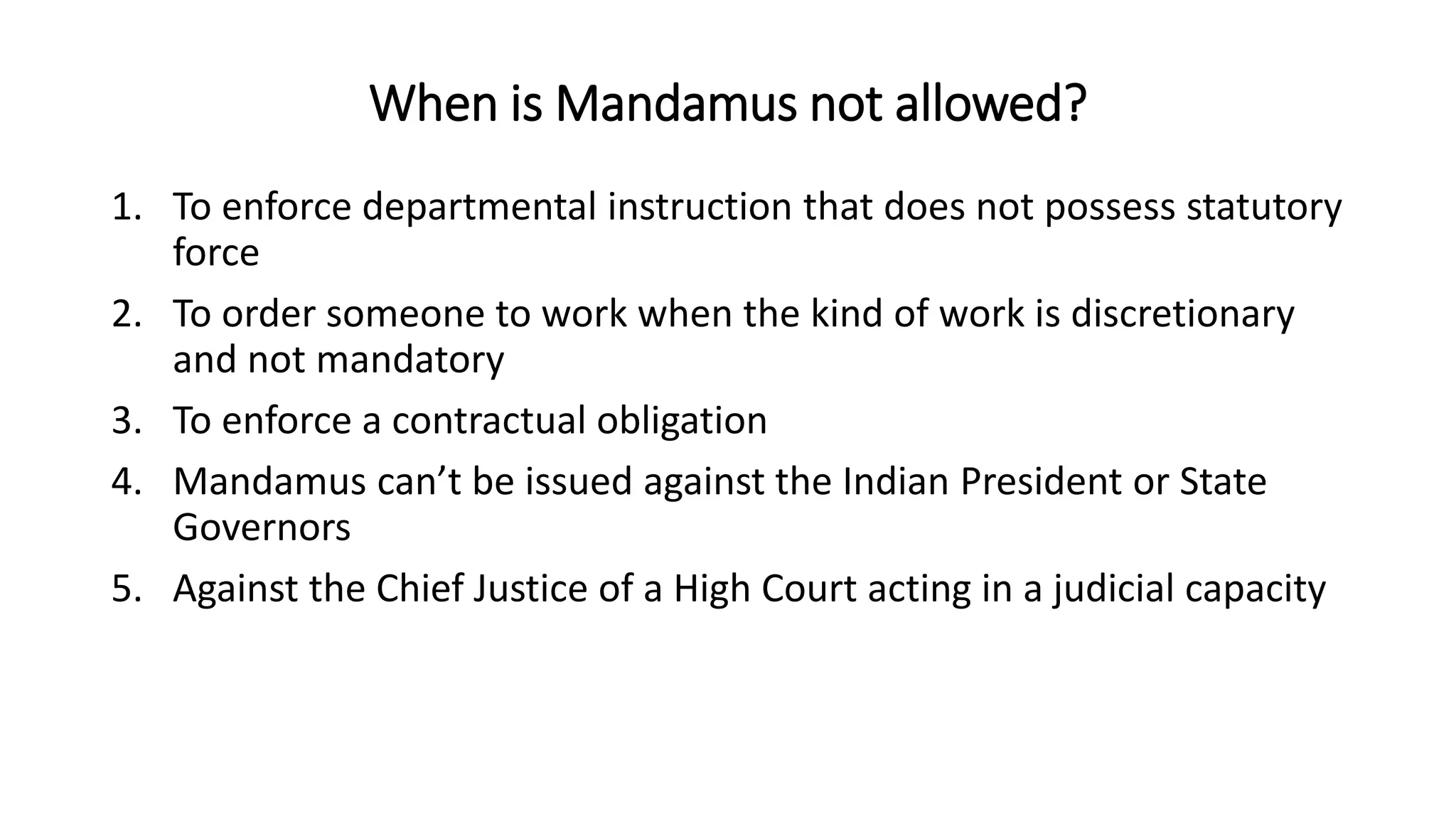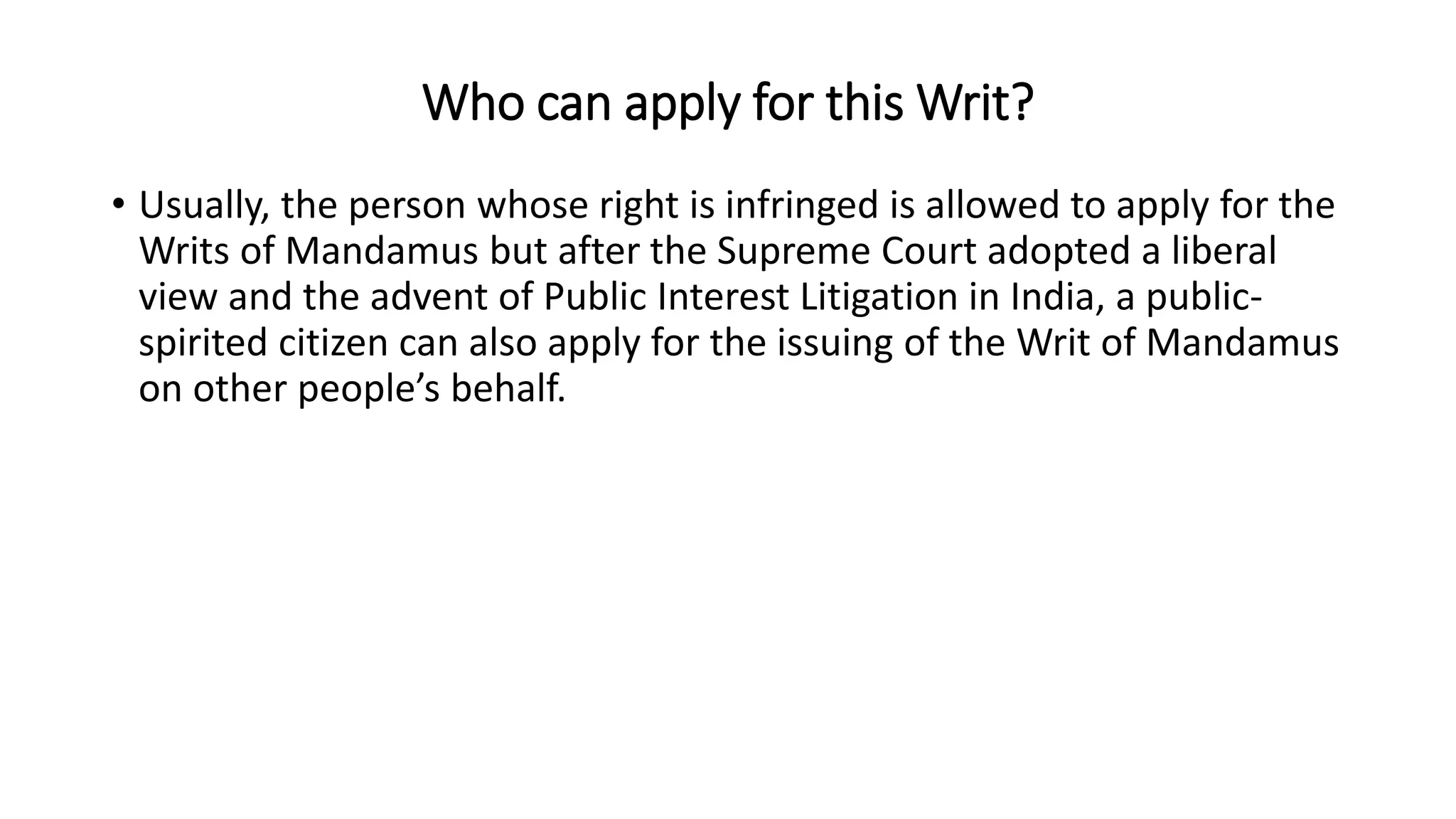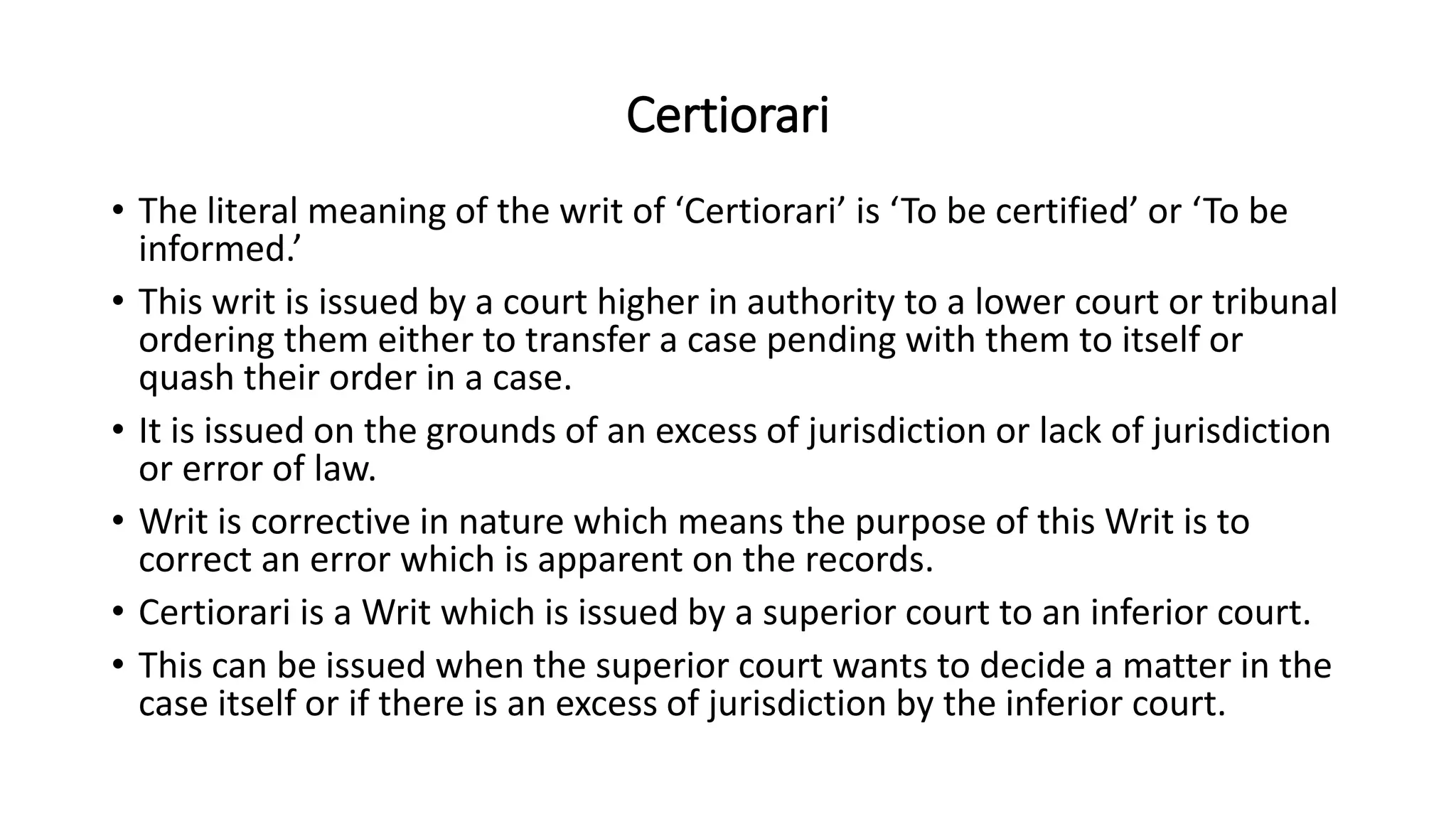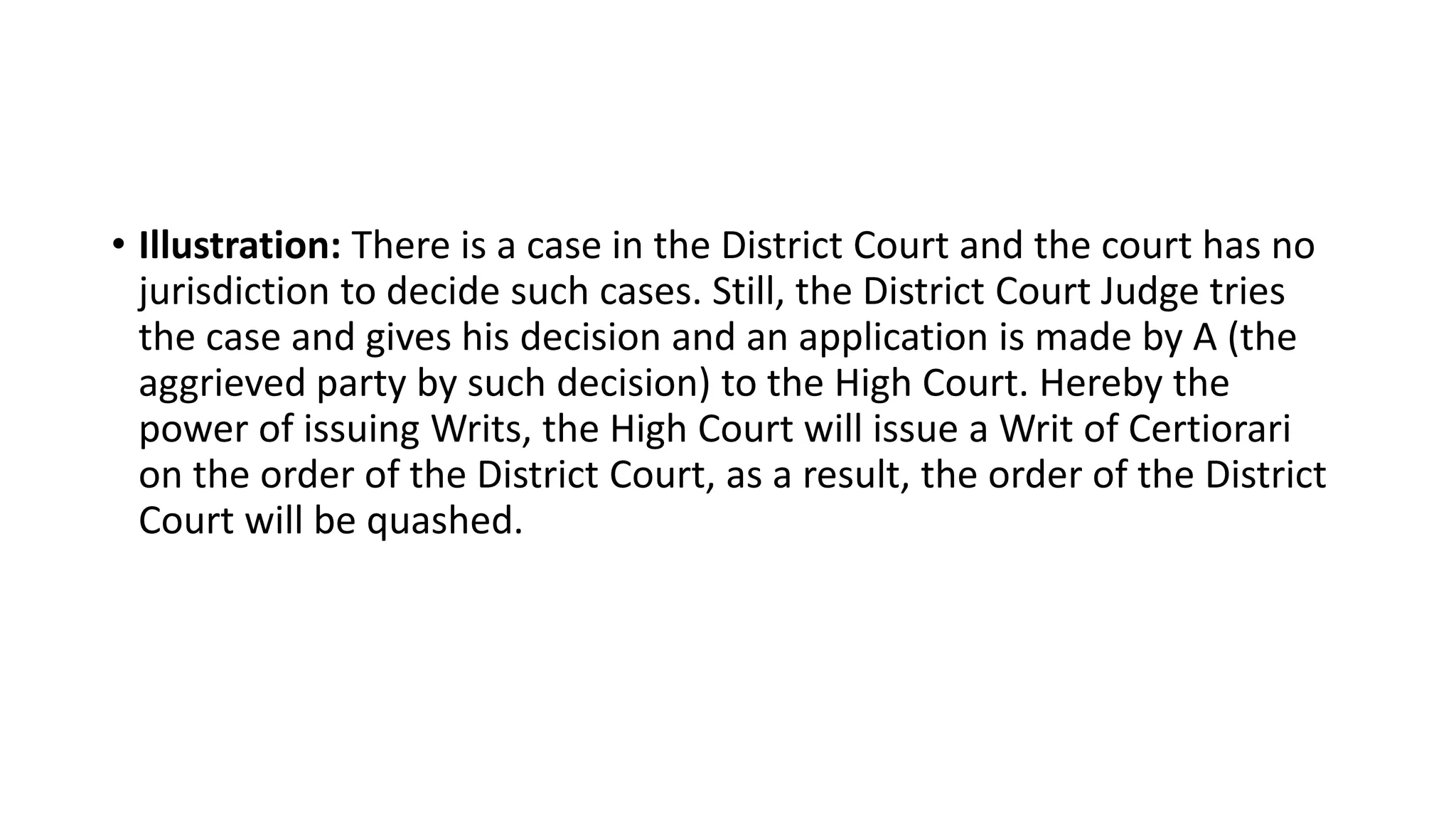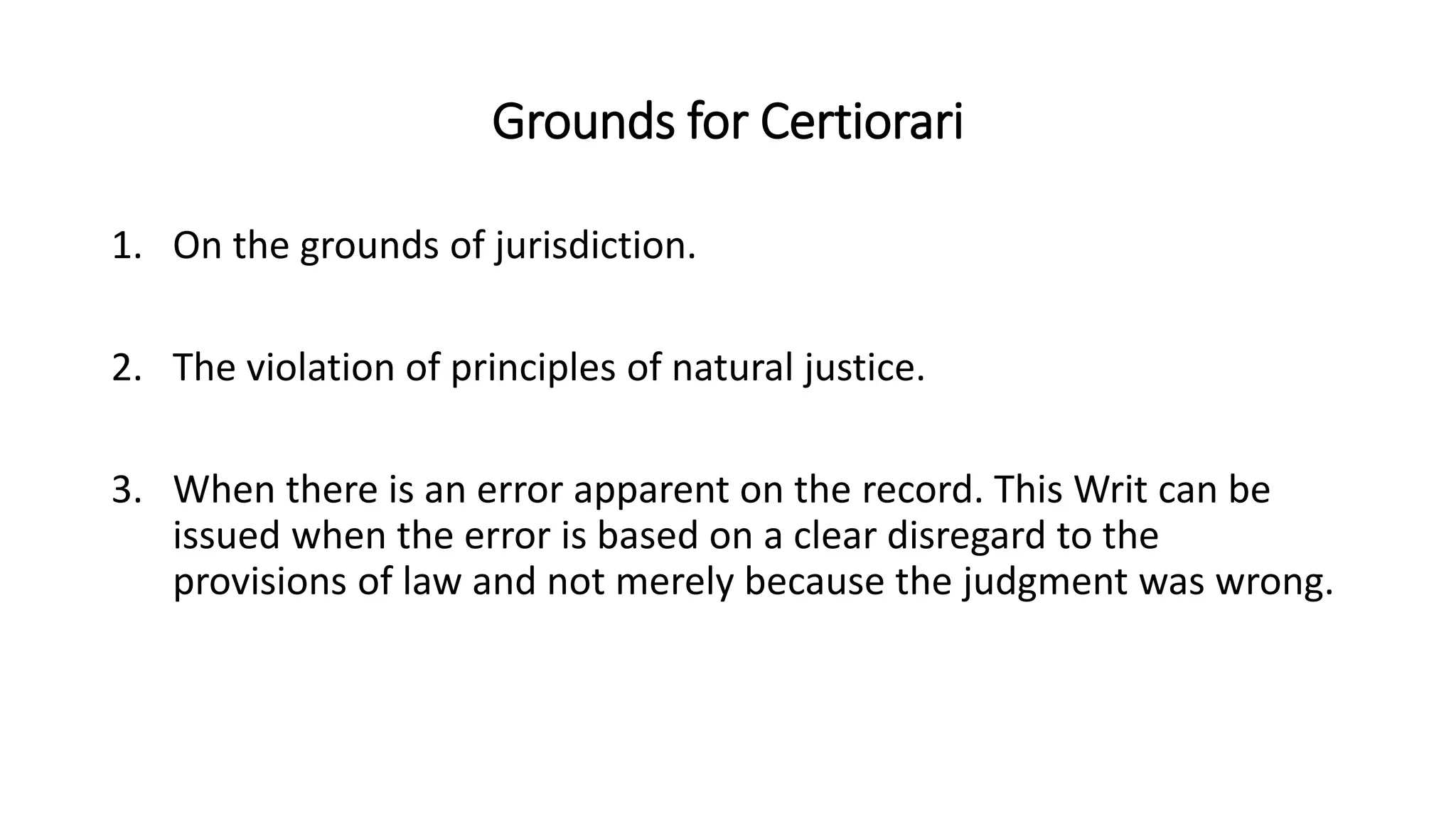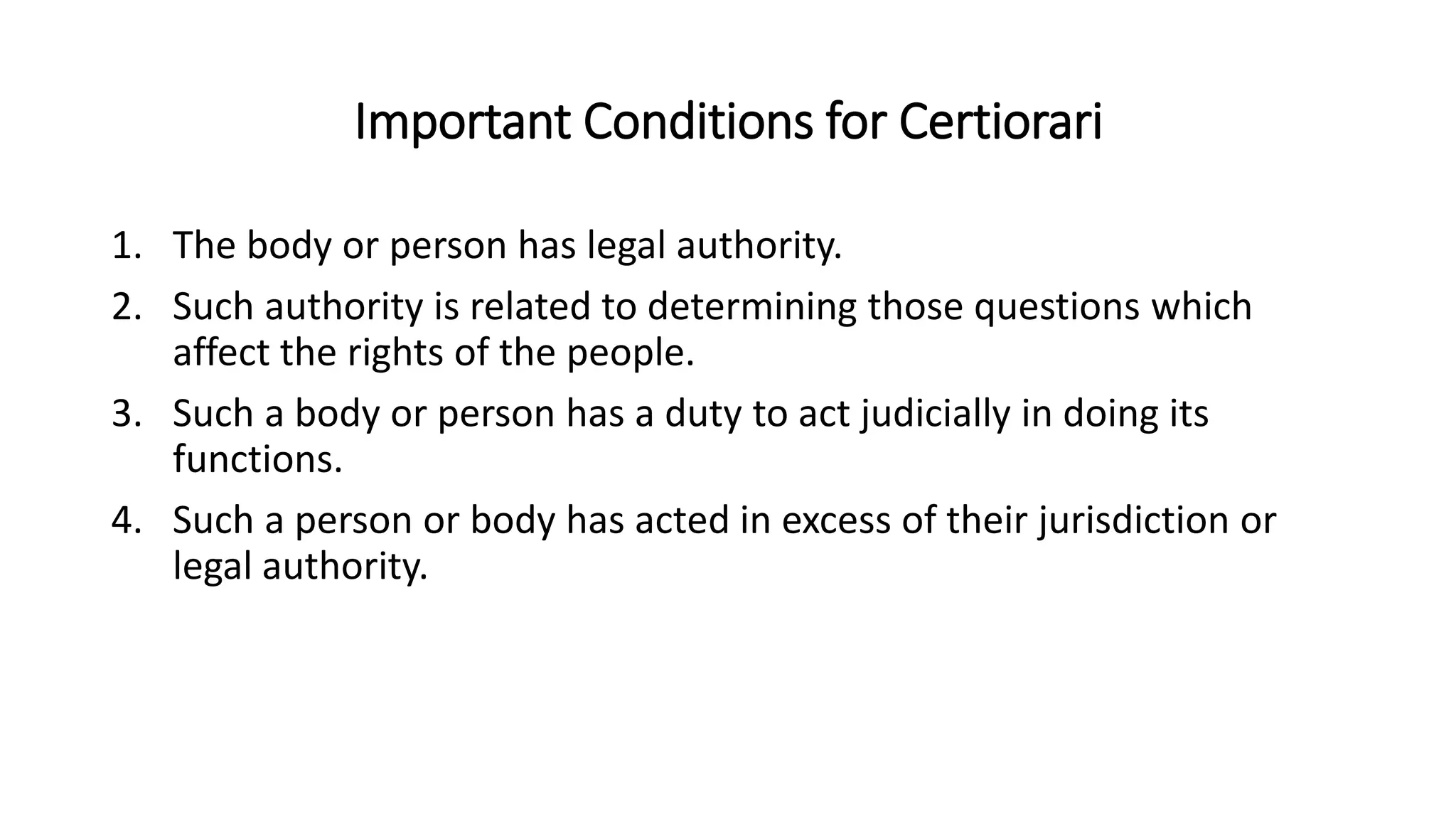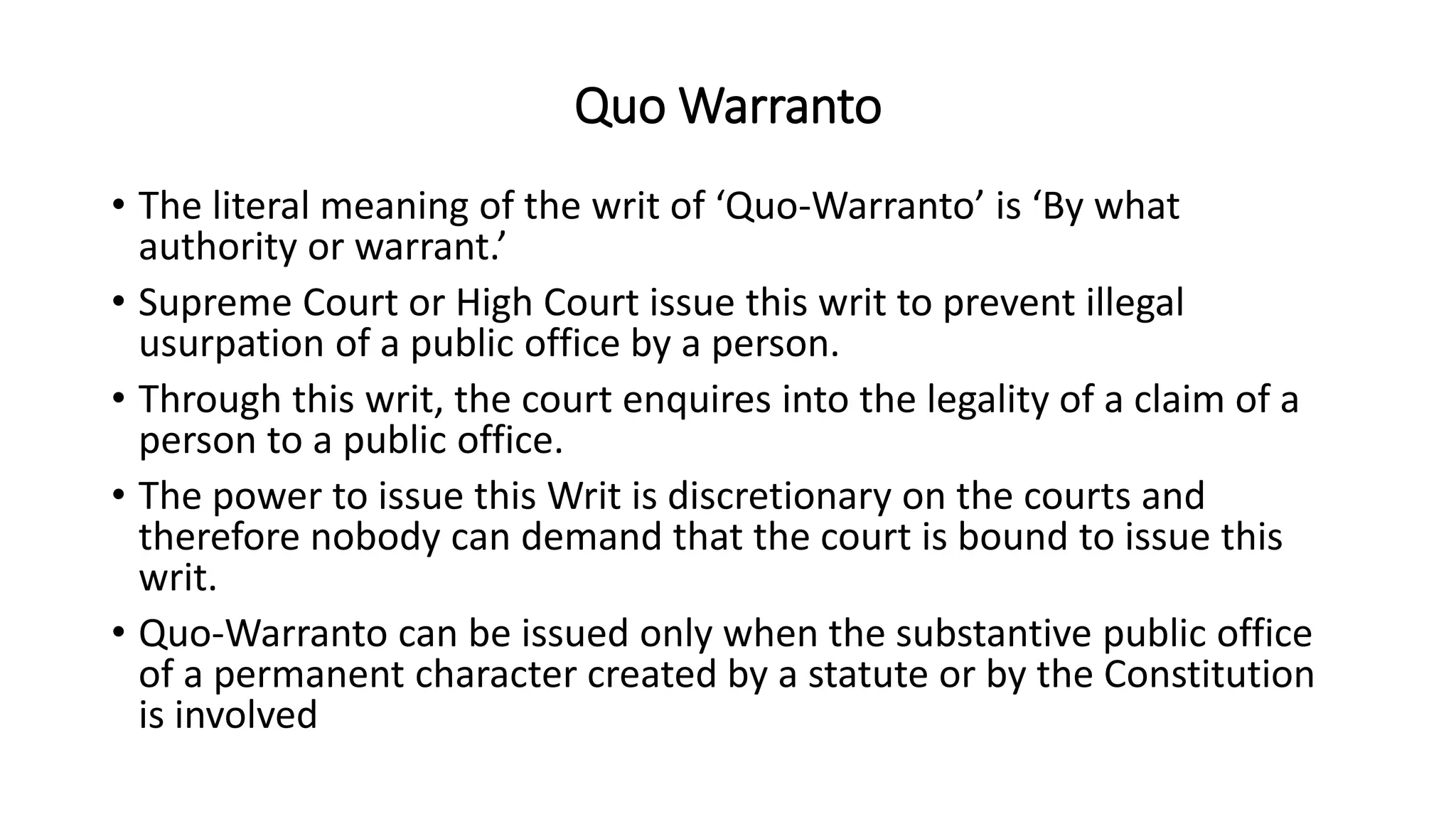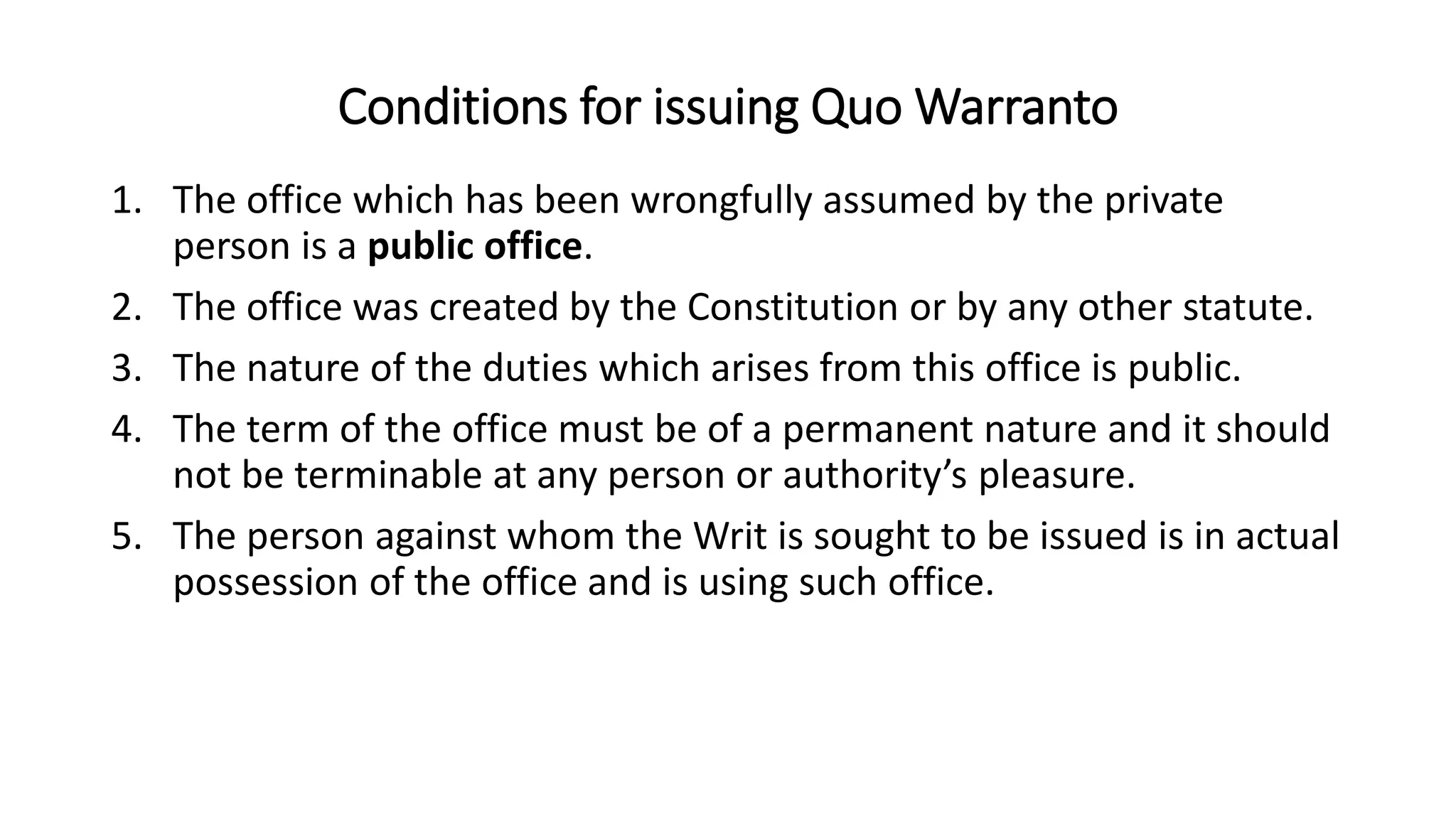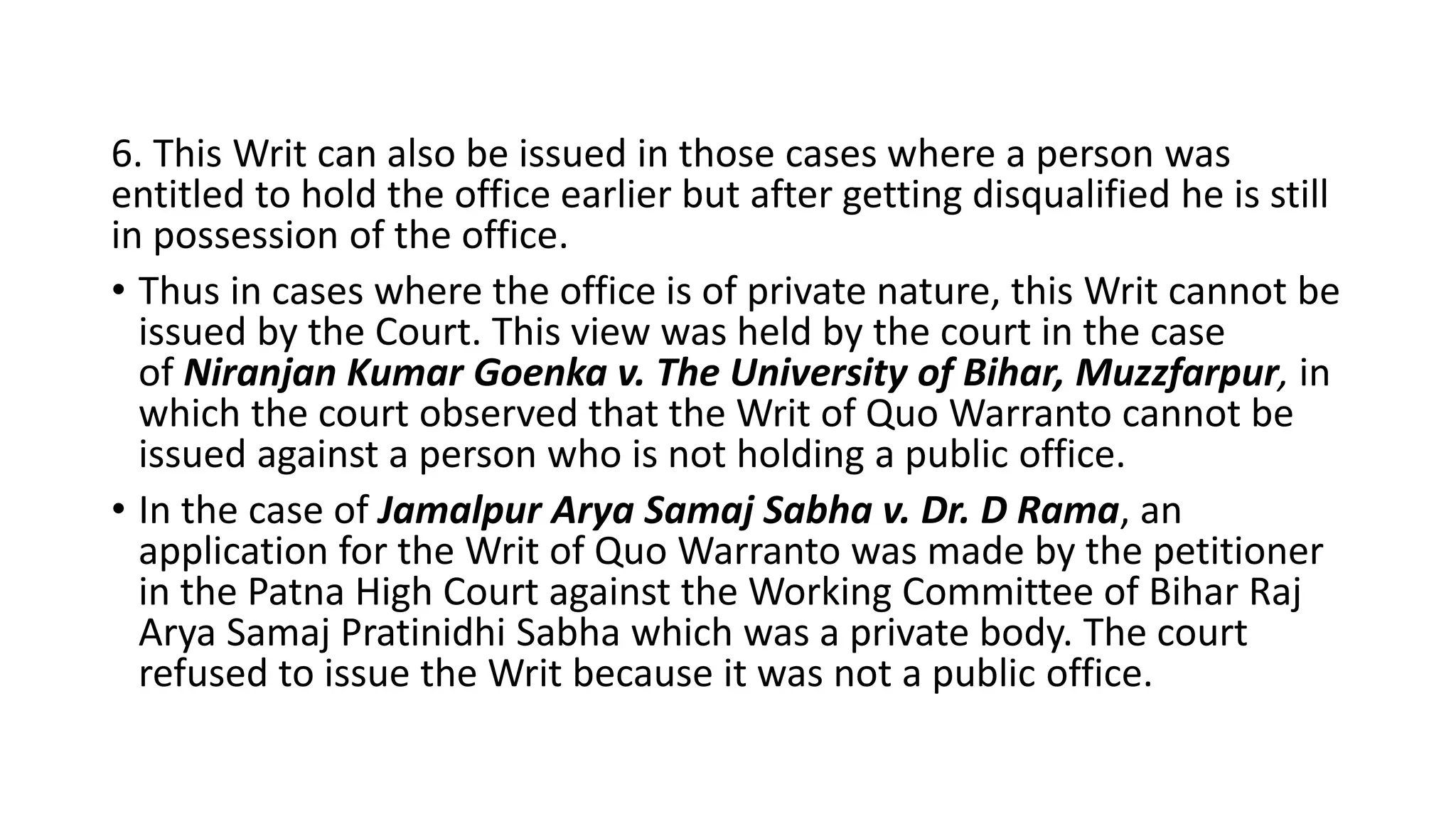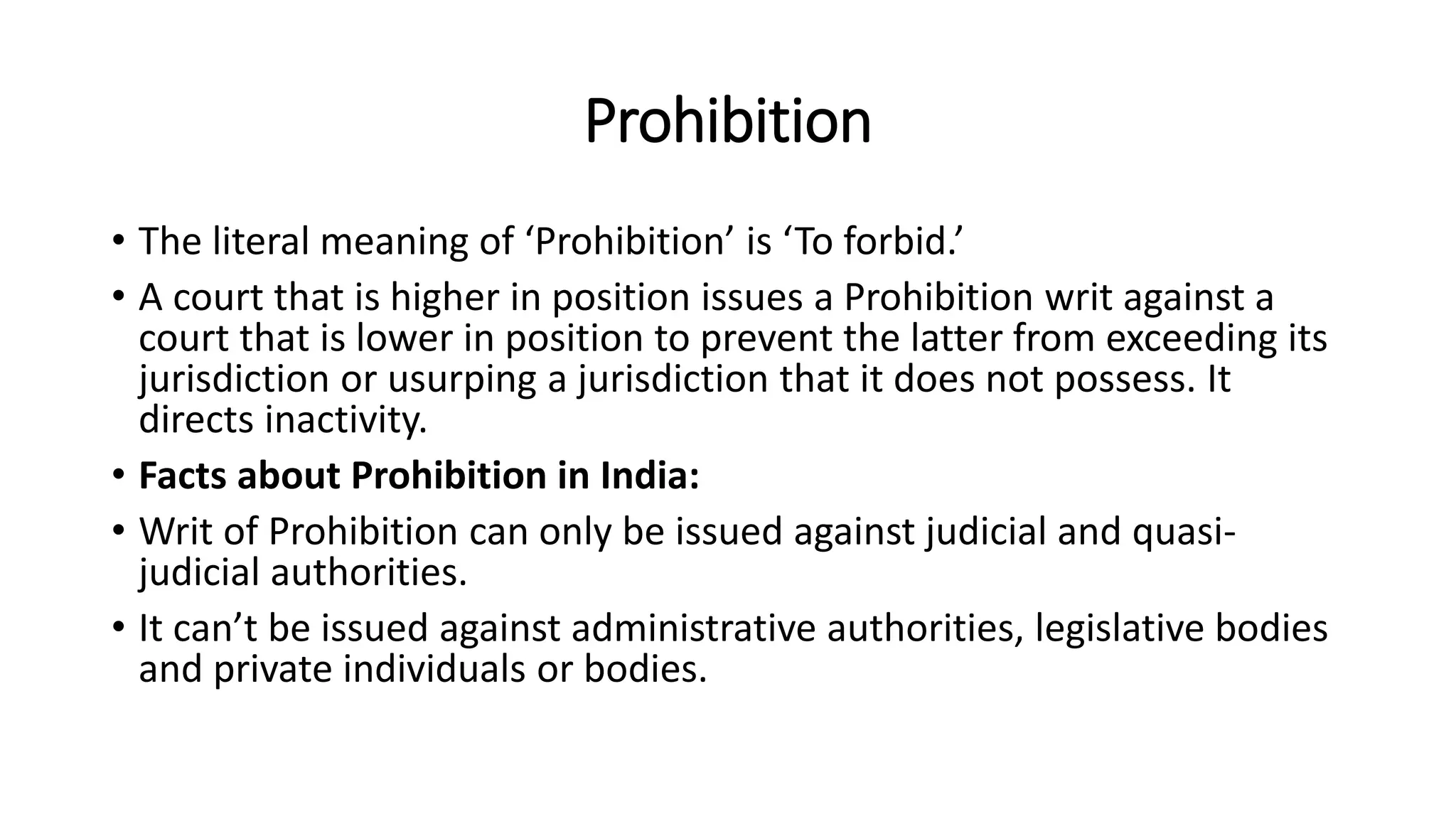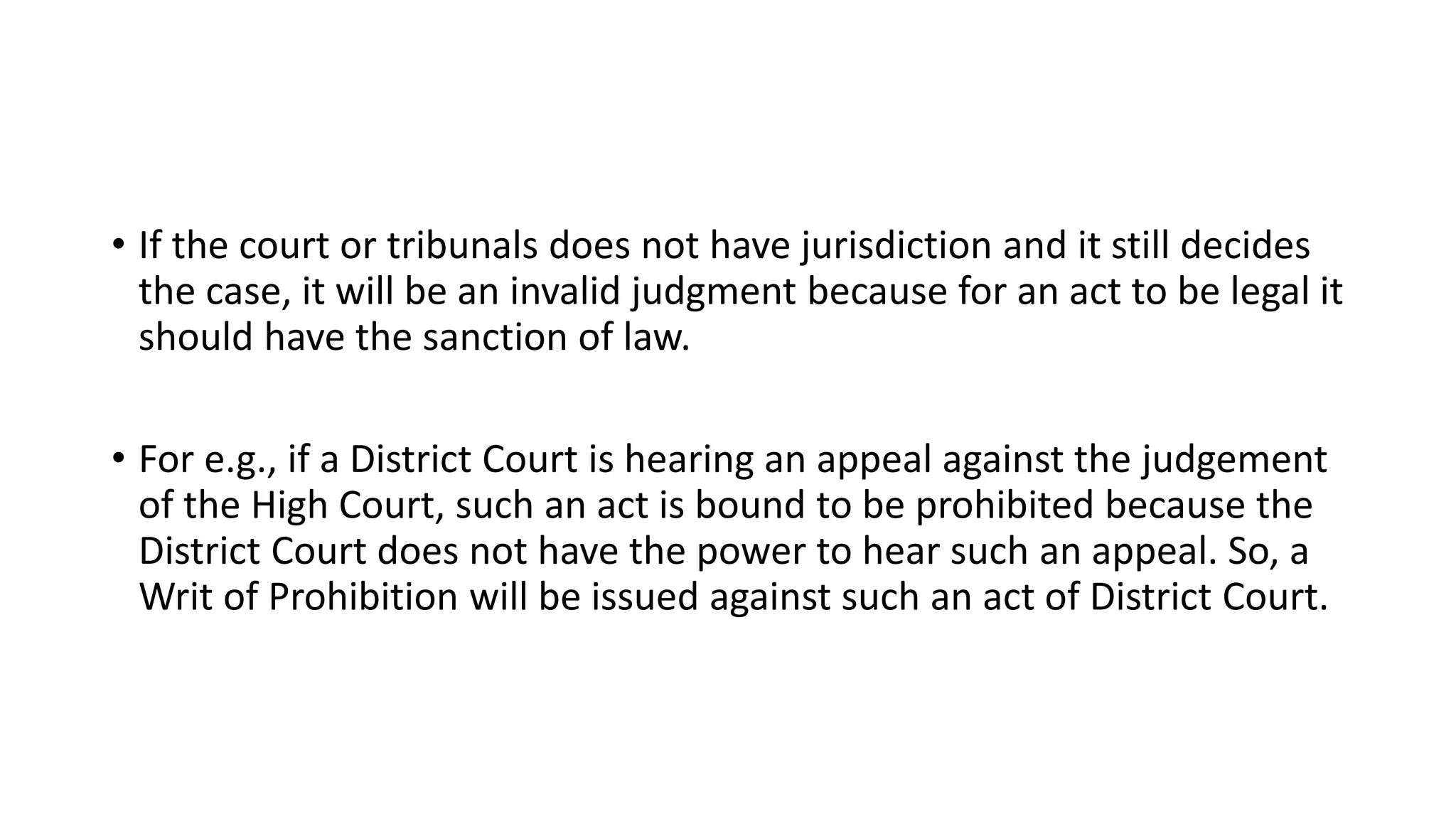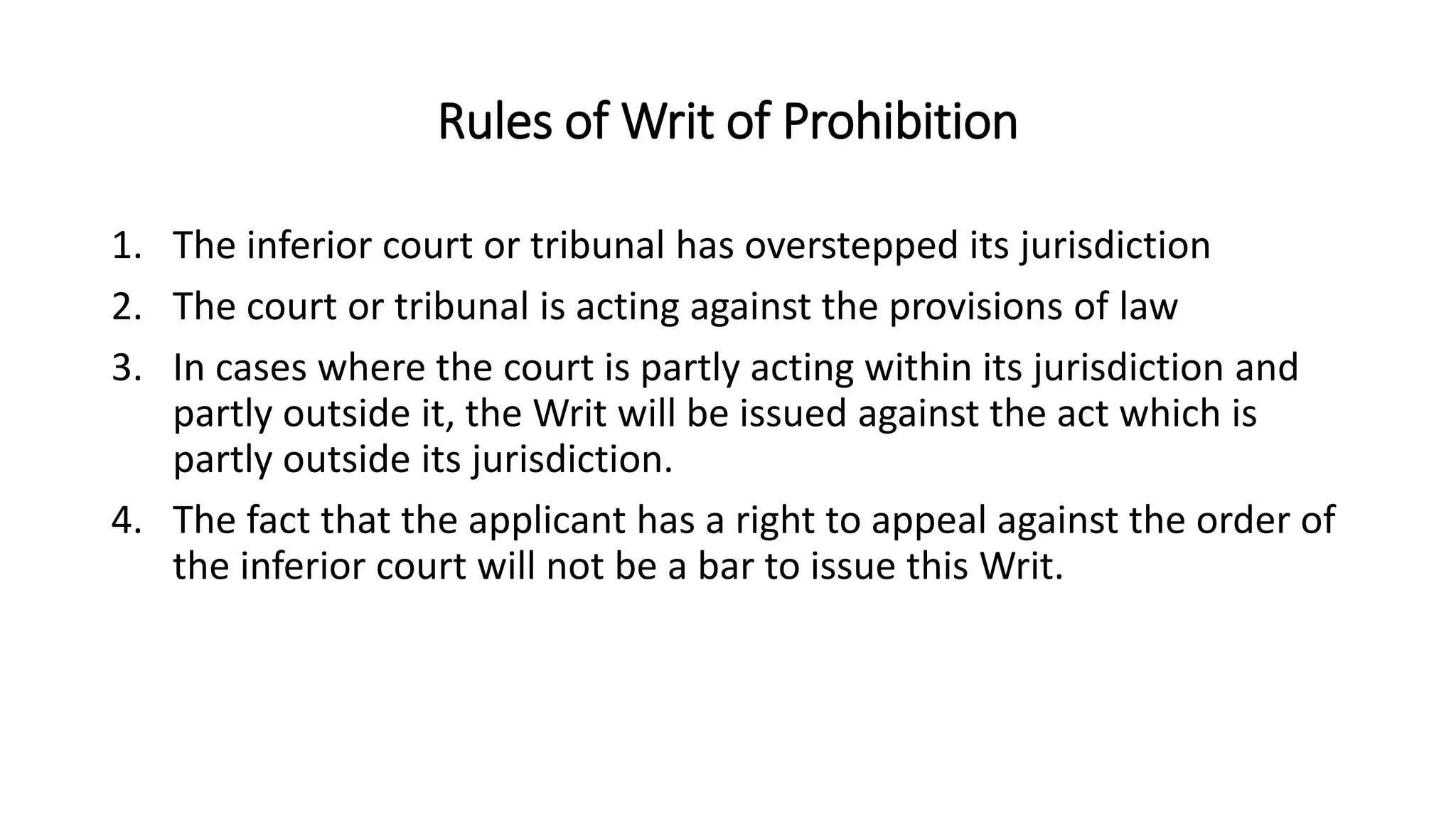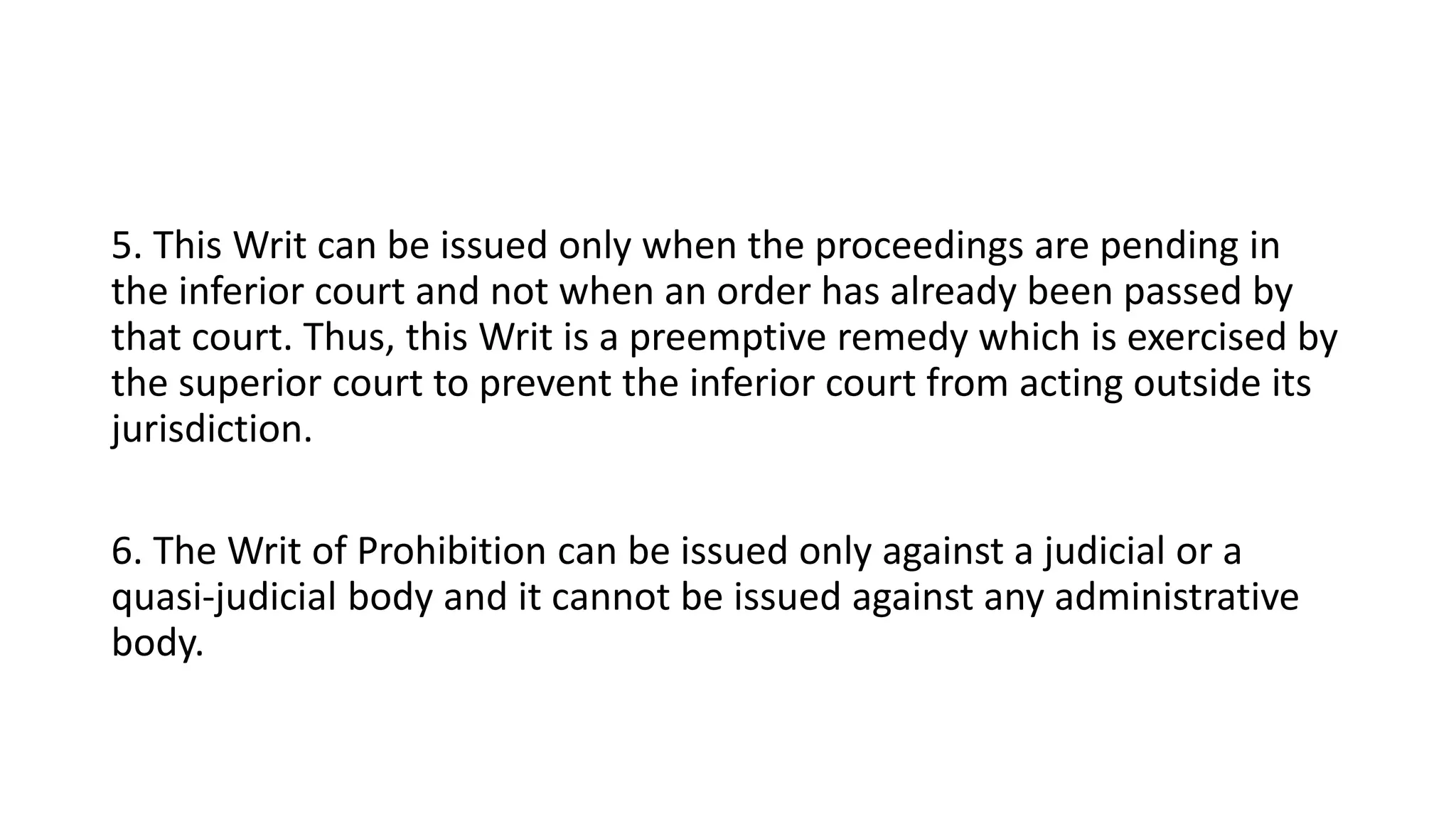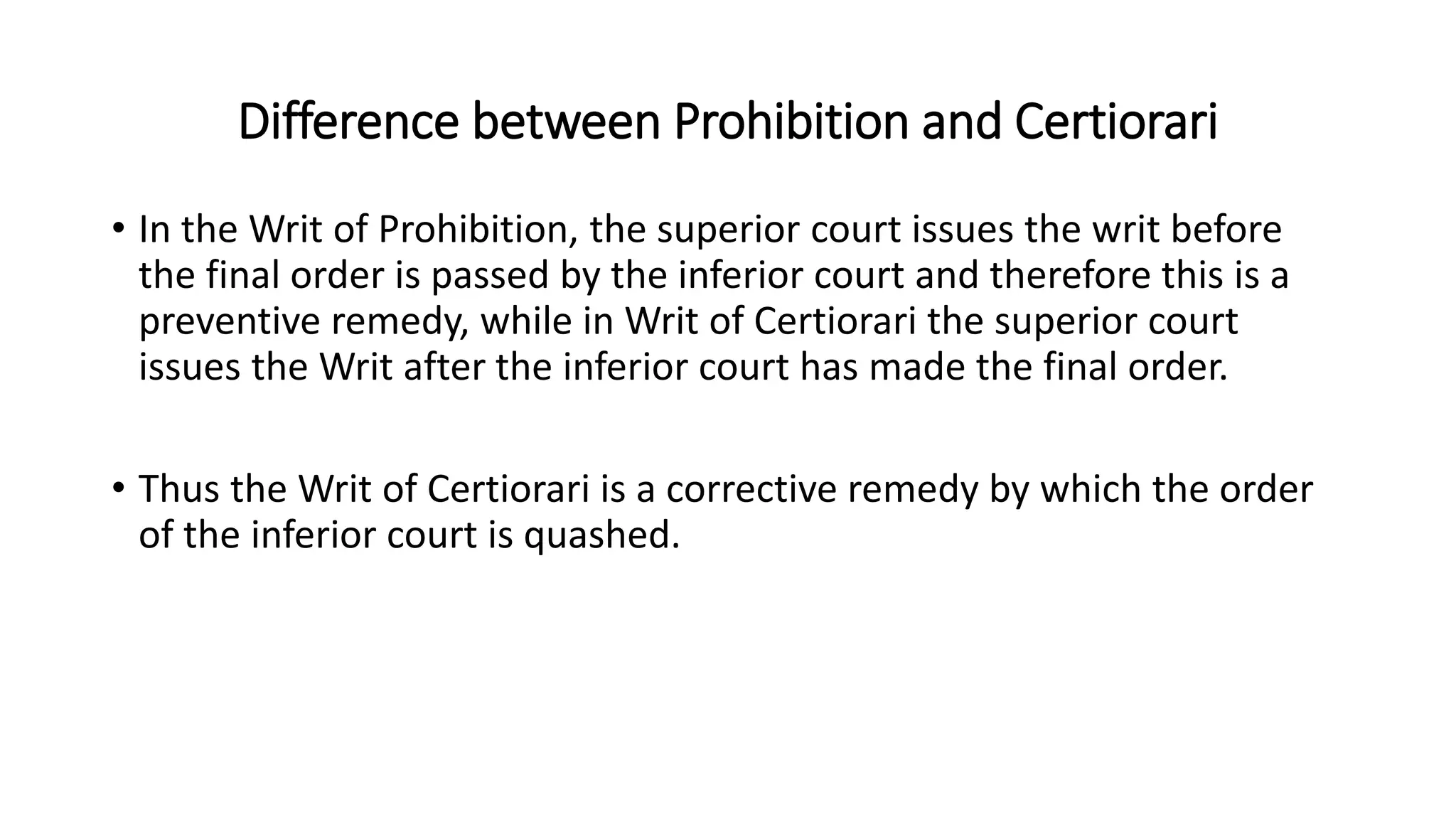The document discusses various writs available under the Indian Constitution to protect fundamental rights and ensure proper functioning of governance. It describes five main writs - Habeas Corpus, Mandamus, Certiorari, Quo Warranto, and Prohibition. Habeas Corpus addresses illegal detention, Mandamus compels public authorities to perform duties, Certiorari corrects errors in lower courts, Quo Warranto challenges unlawful claims to public office, and Prohibition prevents courts from exceeding their jurisdiction. The document provides details on when each writ can be issued and examples of their application in Indian court cases.
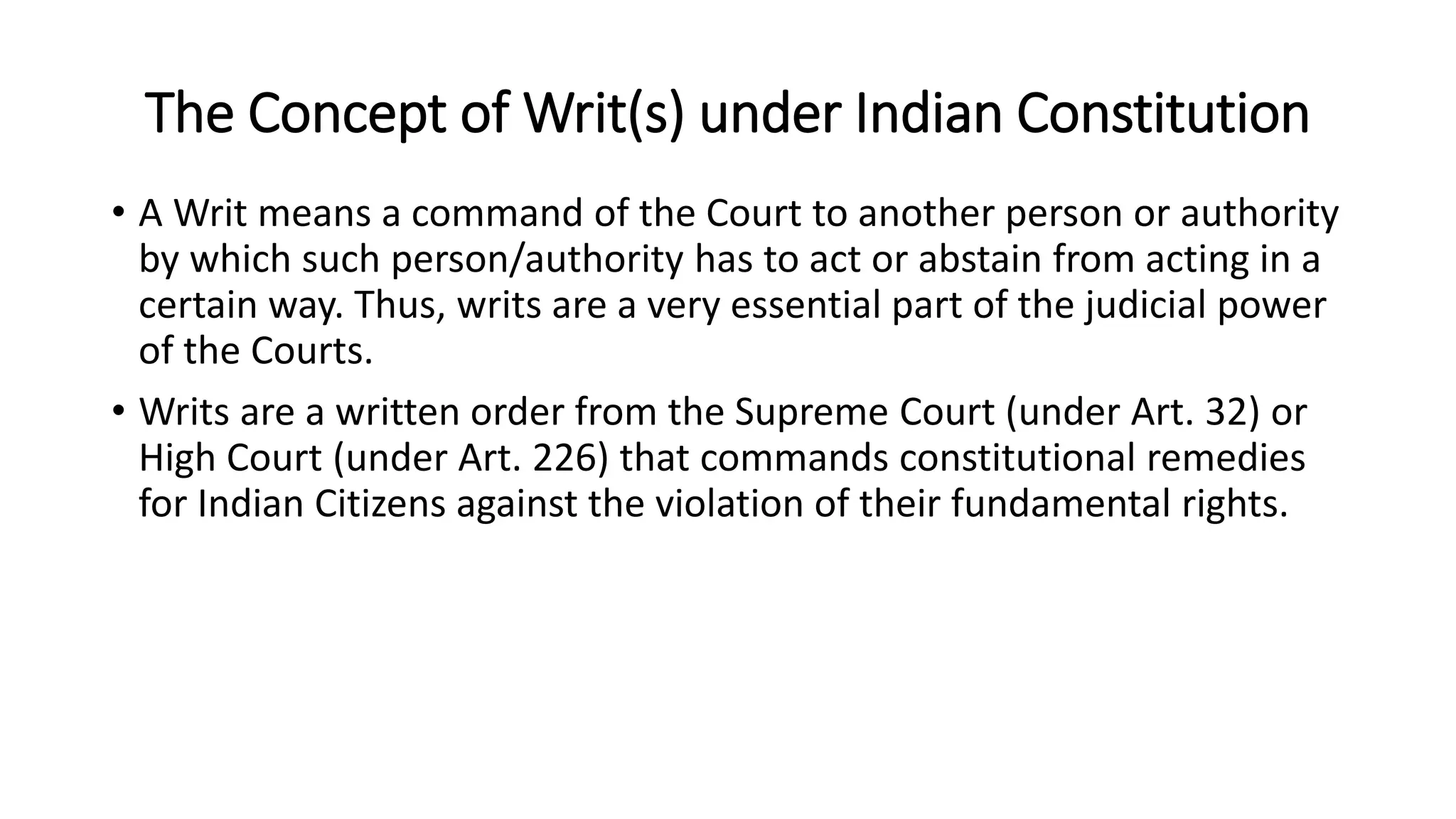
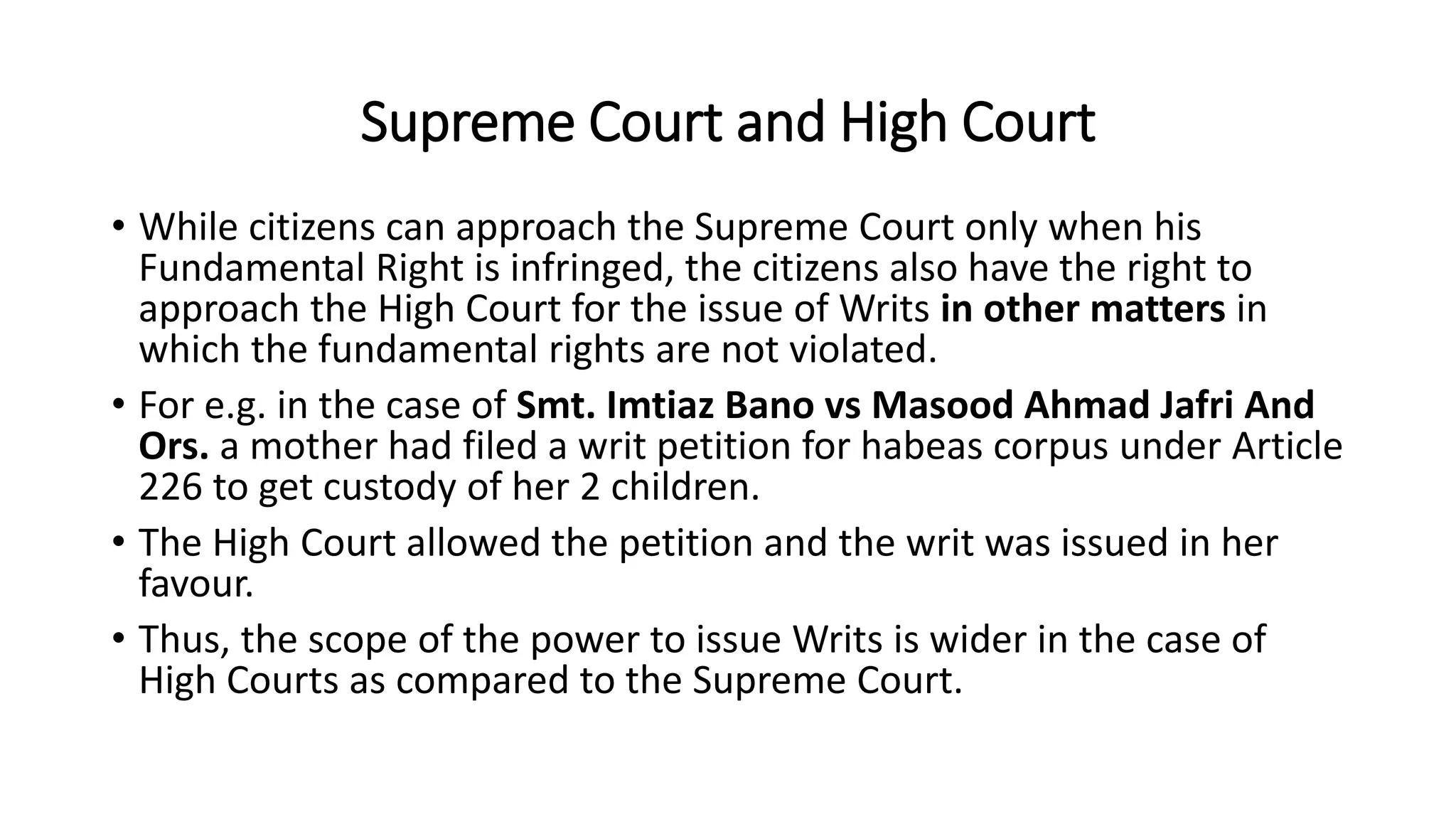
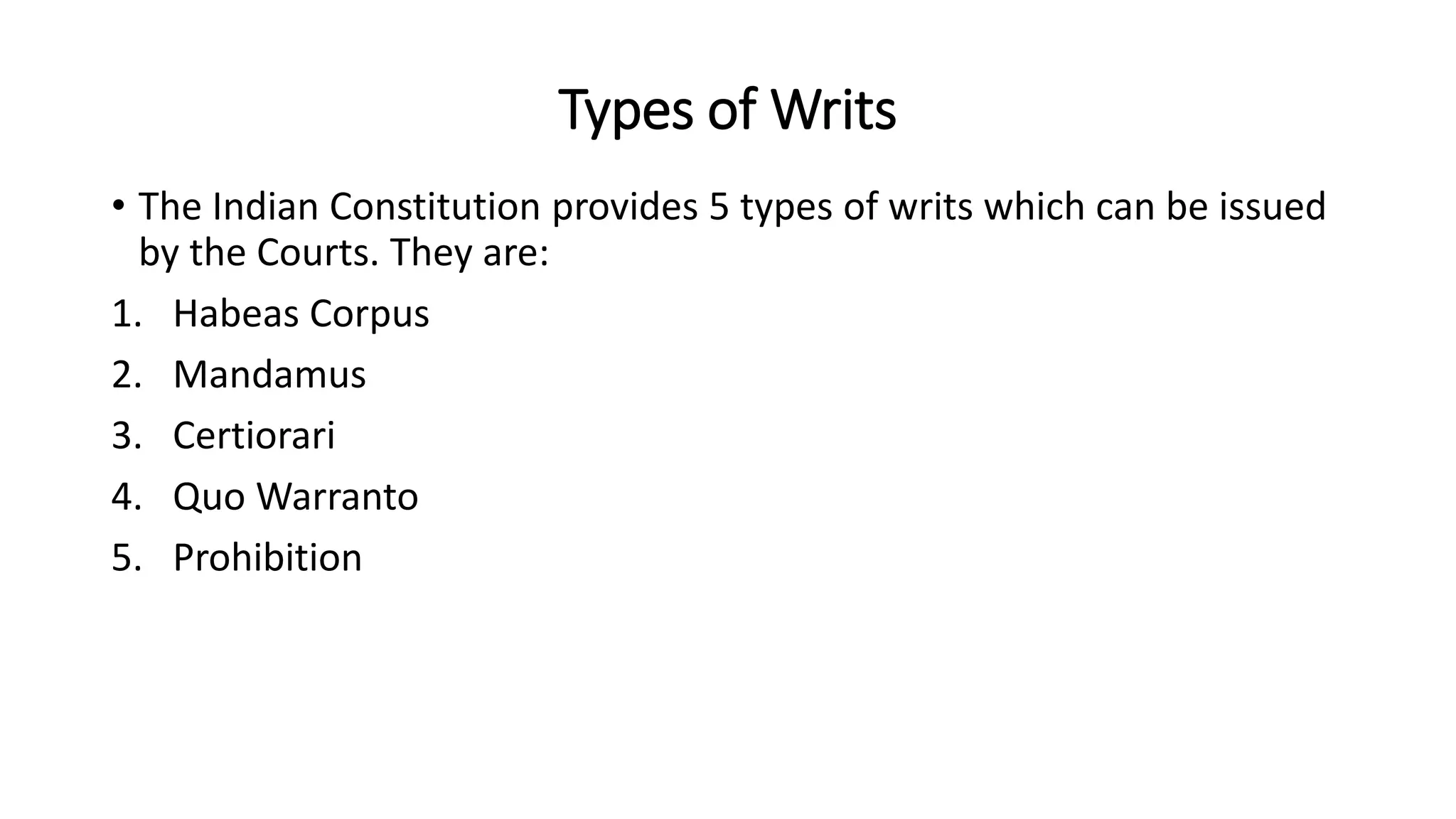
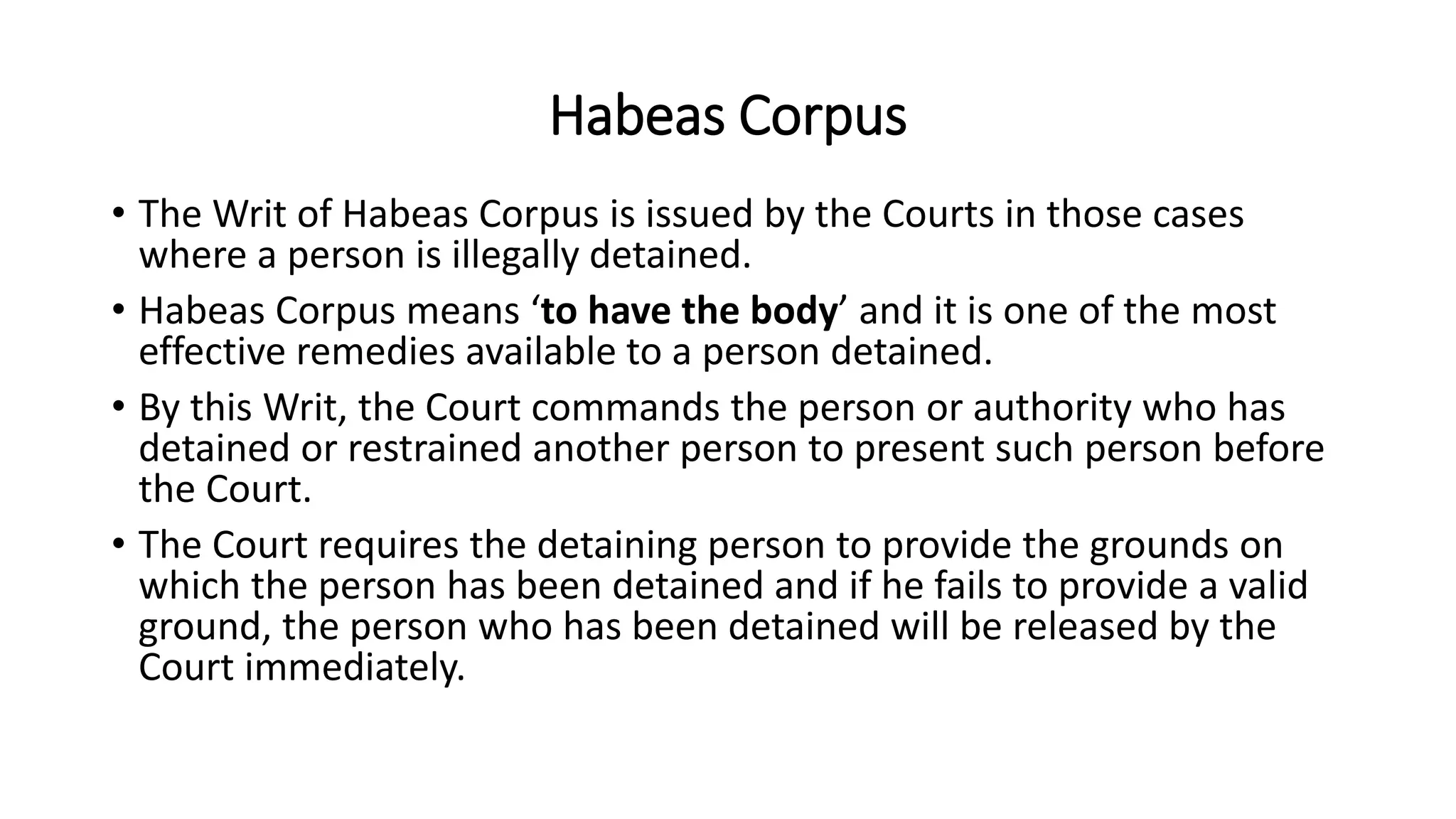
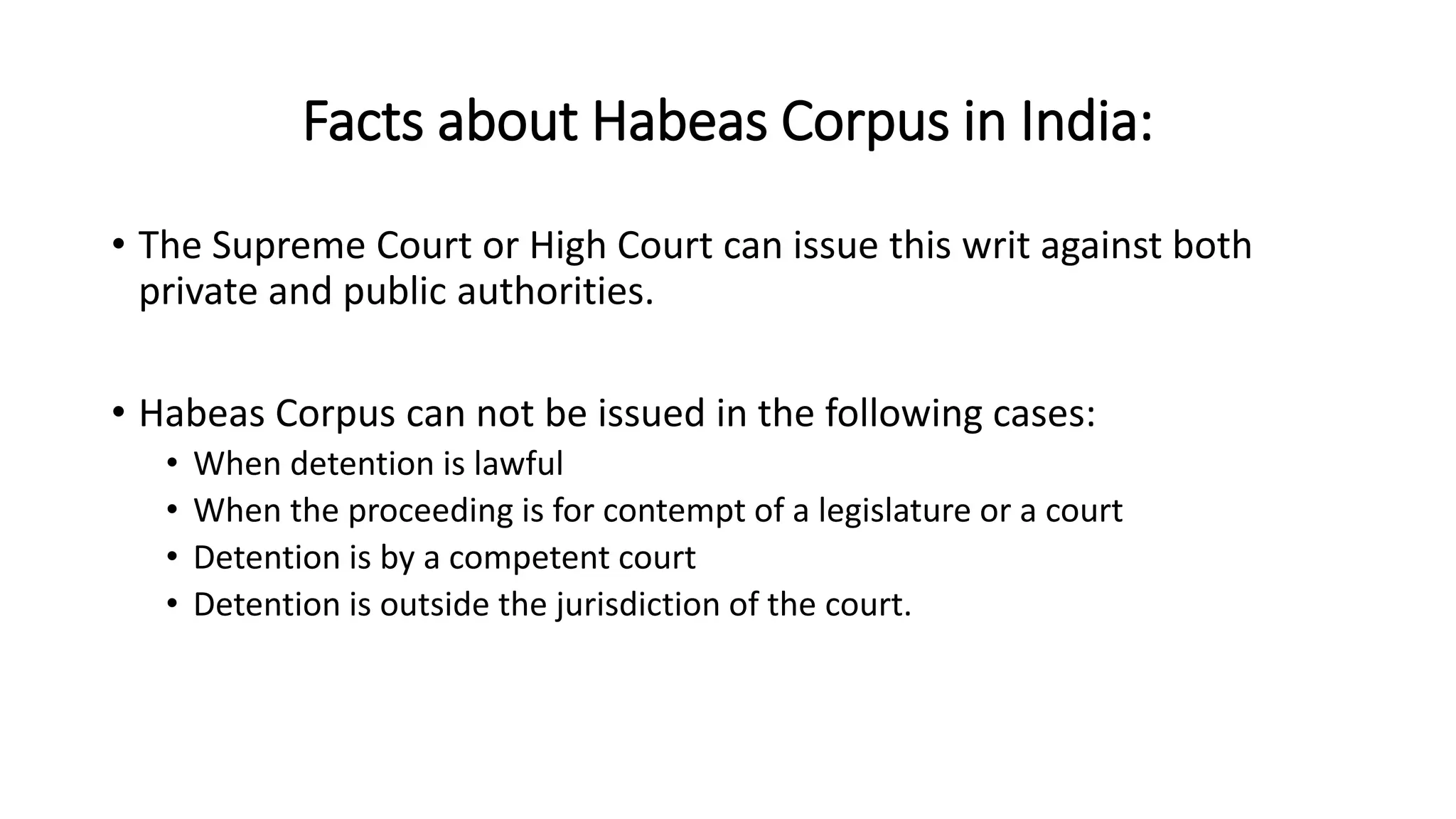
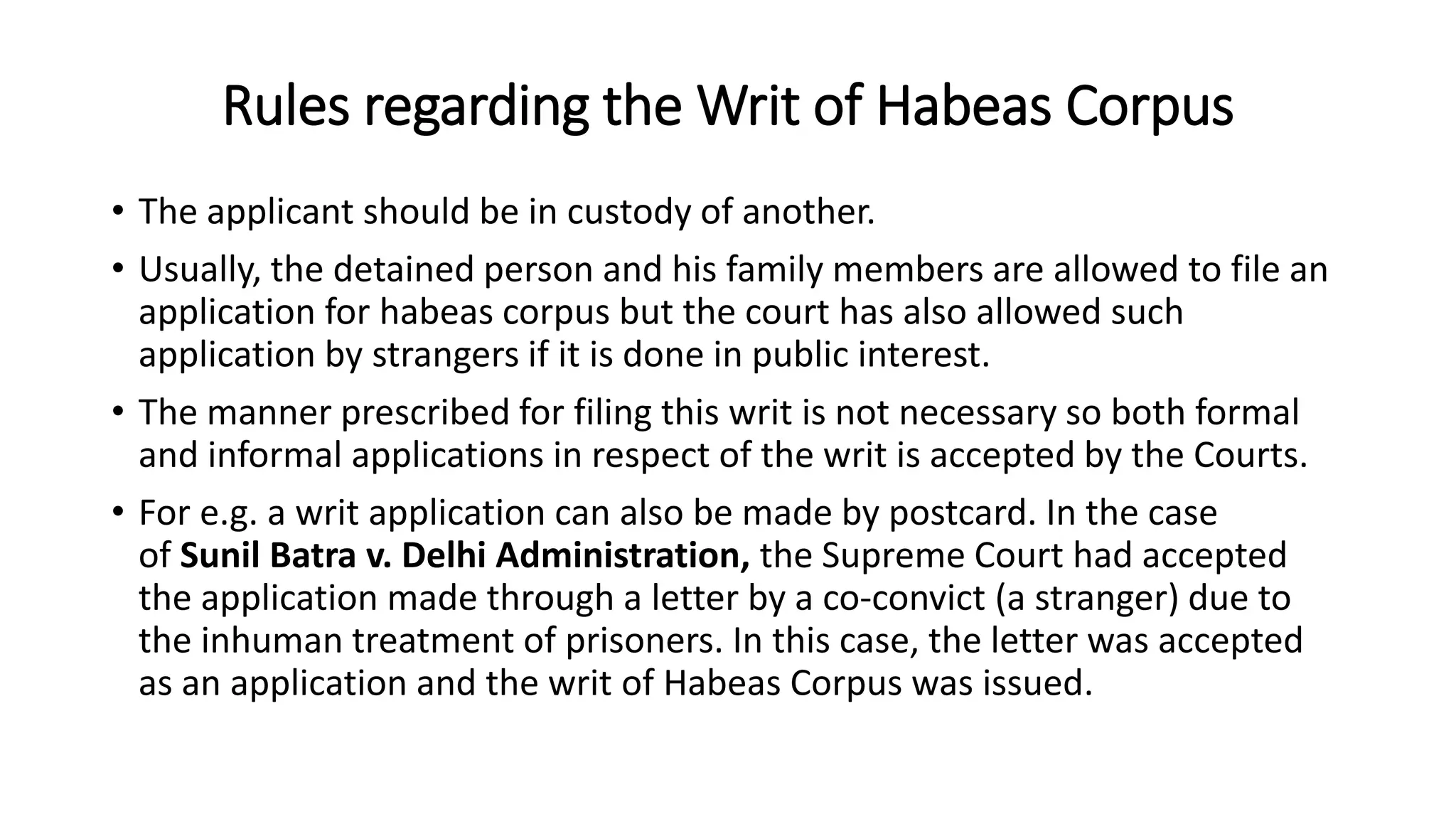
![• A person cannot make the application for the Writ successively to
different judges of the same court. Thus, if an application is rejected
by one judge, the same application cannot be made to another judge
of the same court and if it is done, such an application will be rejected
because of the principle of res judicata.
• This Writ will apply in case of an arrest made by the police when all
the formalities and procedures which are required to be followed are
not followed. For example – the requirement of presenting the
arrested person before a magistrate or the officer in charge of the
police station. [Section 56 of CrPC]](https://image.slidesharecdn.com/writs-240319225603-9e7ba9e1/75/concept-of-Writs-pptx-of-Indian-constitution-7-2048.jpg)
